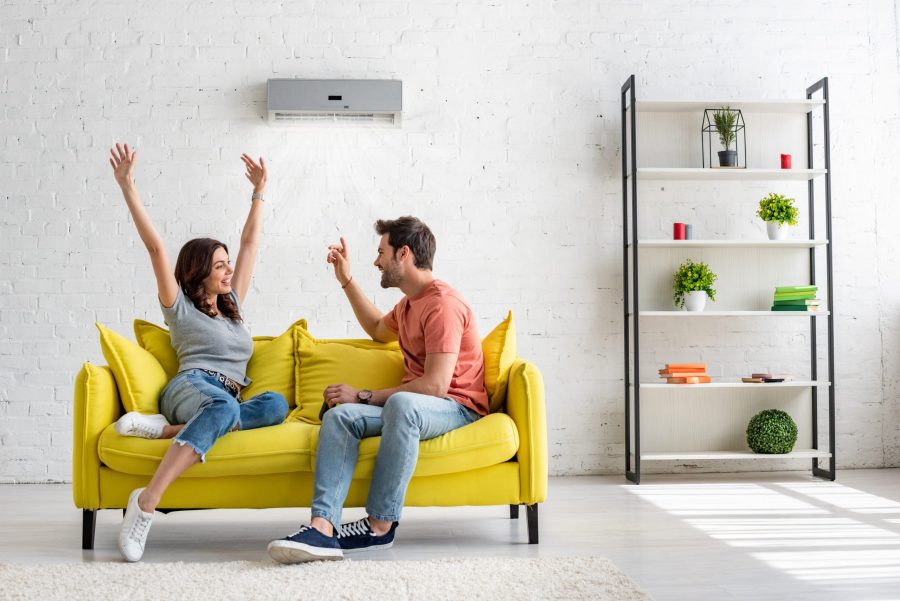As a homeowner, you want your air conditioning and heating system to work optimally to keep your home comfortable throughout the year. And if you’re like most people, you don’t want to be paying for expensive home heating and cooling systems over time. And considering the Heating, ventilation and air conditioning (HVAC) system accounts for a significant part of your energy expenses, it’s worthwhile finding ways to boost its efficiency at heating or cooling your home.
If left unchecked, the air conditioner can considerably increase your energy bills. Luckily, there are many different ways to improve your air conditioner efficiency and save money in the process. And to get you started, read on and try these seven simple tricks by an HVAC contractor Leesburg on how you can boost the efficiency of your home heating and air conditioning unit.
-
Close Your Windows And Curtains
One way you can boost the efficiency of your HVAC system is by keeping the curtains down and closing the windows as much as possible. It helps prevent the heat from outside coming into your house. You should also close off any rooms not in use, especially if they’re adjacent to the room you want to keep cool. These additional rooms will only serve as conduits for hot air to pass through and make its way into your house.
You also should close the blinds or curtains in rooms that get a lot of sunlight during the day to ease the air conditioner’s task of cooling down your home.
-
Install A Smart Thermostat
Another way to lower your energy expense is by ensuring your HVAC system isn’t cooling or heating unoccupied rooms in your home. You can prevent this from happening by installing a smart or programmable thermostat that you can manually preset temperatures for specific periods during the day. Thanks to this setting, you never need to worry about wasting energy heating or cooling empty rooms in your home.
-
Schedule Routine Maintenance
You shouldn’t wait until your air conditioner has problems to call an HVAC professional to repair it. Doing this won’t only be expensive but also inconvenient because you’ll have to cope with the unfavorable conditions during this period. You can prevent getting to this point by regularly scheduling a tune-up for your heating and air conditioning unit, ideally once every year.
During routine maintenance, an HVAC technician will resolve any minor issues that might be affecting your air conditioner before they worsen. In addition, they’ll make some adjustments that can help enhance the performance and efficiency of your HVAC unit.
-
Change The Air Filter
Maximum airflow is necessary for your air conditioner to work with optimal efficiency. However, this can’t be achieved if the air filters are clogged, as it becomes a lot harder for air to pass. As a result, the HVAC system will have to use more energy to force air through, which further increases your energy use.
You can prevent such a situation by replacing the air filter after every one to three months. Otherwise, the filters will get clogged, which might even lower the air quality in your home.

-
Clean The Area Around The Outdoor Condenser Unit
An air conditioner’s outdoor unit needs to be free of dirt and debris to run at optimal efficiency. And to realize this goal, make sure that the area surrounding the outdoor condenser unit is clean and free of any debris. Otherwise, vegetation, dirt, or debris will find its way into the outdoor unit and considerably inhibit the air conditioner’s efficiency.
With this in mind, ensure that the area around your outdoor unit is always clean to ensure that your HVAC system is always running optimally.
-
Insulate Exposed Ductwork
Exposed ductwork passing through unconditioned spaces such as the utility room, basement, or garage will leak the cooled or heated air before it gets to the intended area. When this happens, you might lose between 20 to 30 percent of the HVAC unit’s generated energy.
To prevent such wastage, you need to insulate the exposed ducts using mastic sealant or metal tape. It will significantly reduce your heating bills by ensuring cooled air doesn’t get lost.
-
Install Ceiling Fans
You don’t want to strain your air conditioner too much with the mandate of cooling down your home. You can help ease its cooling task by installing ceiling fans that’ll circulate air-conditioned and cool air inside your home. Ceiling fans capably do this by ensuring proper air circulation, thereby making your home feel a lot cooler.
Takeaway
You need to ensure that you’re heating and air conditioning unit is working as efficiently as possible to reduce your energy bills. In addition, if they’re not working as they should be, it can cause problems in your home, thereby making you feel uncomfortable and unhappy. Thankfully, it’s easy to avoid these problems if you follow the advice that you found here today.

